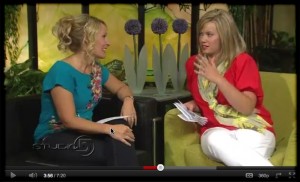 Guest Post: Hollie L. Hancock, M.S., CMHC
Guest Post: Hollie L. Hancock, M.S., CMHC
Reflect on how well you take care of your own needs. Help me learn more by filling out a counselor self-care practices questionnaire.
While attending an ethics conference last week, I took the opportunity to solicit participation from my fellow counselors and psychotherapists for my dissertation research. As I described the study, and as the words “counselor self-care” crossed my lips, a loud and obvious laugh erupted from various corners of the large ballroom where the conference was being held. From the front of the room I saw people looking at one another, laughing, and rolling their eyes; I even read the lips of one man in the front row as he said to the woman next to him, “Yeah, right!”
Honestly, I was not surprised. In fact, I almost expected this type of response. The laughter, snickers, and side-ways comments are exactly the reason I am researching counselor and psychotherapist self-care practices.
As therapists, we use our education, training, and skills to help patients live more rewarding and healthy lifestyles, independently. Ironically, many therapists seem reluctant to offer themselves the same kind of understanding and care. Yet, in reality, it is this self-care, both personal and professional, that ultimately is the most important, not just for patients, but also for we as therapists as well. It is quite possible that mental health professionals are one of the few professions that does not purchase or utilize their own product.
Lack or absence of self-care practices among mental health professionals appears to be almost synonymous with compassion fatigue and burnout. The literature seemingly suggests that by mentioning self-care – counseling professionals are burned out or experiencing compassion fatigue to some degree. Do a small research study of your own: Conduct a Google search using the words “counselor self-care”. You are likely to find half of the top results include the word “burnout”.
Participate in my dissertation research on counselor self-care practices
In an effort to understand the possible phenomenon of the lack of self-care practices among counselors and psychotherapists, I am asking colleagues across the nation and even around the world, to provide responses to a brief questionnaire created for my dissertation research. Therefore, you are cordially invited to participate in a study that will ask questions about your experiences with self-care practices as a counselor or psychotherapist. This inventory is called The DEFT Questionnaire. “DEFT” represents what counselors and psychotherapists “do” for self-care, how they “experience burnout”, how they “feel” about their self-care practices, and finally what counselors and psychotherapists “think” about self-care. The purpose of this study is to explore whether or not there is a correlation between self-care practices and burnout among counseling professionals. Completing the questionnaire will take about 15 minutes of your time.
To be better clinicians in our roles as counselors and psychotherapists, we owe it to our patients, and more importantly ourselves, to be aware of our self-care needs, and adjust our behaviors accordingly if necessary to avoid impairment, burnout, compassion fatigue, and even post traumatic stress disorder.
I have provided the link to the questionnaire below. I respectfully ask that you take 15 minutes of your time to complete the questionnaire. Then, please share the link with your peers and colleagues. I thank you in advance for contributing to the body of literature available regarding counselor self-care practices!
Fill out the counselor self-care survey here:
https://acsurvey.qualtrics.com/SE/?SID=SV_cvWrM4l8iqBWU1D
The questionnaire will be available until March 31, 2013
Hollie L. Hancock, M.S., CMHC is in private practice at Iron Mountain Counseling is a Doctoral Candidate in Counseling Psychology, Argosy University, Salt Lake City, UT

 If you got an email today from a local news station asking to interview you as an expert on camera about one of your specialty areas for a news story, how would you respond? Surprisingly, many therapists let the opportunity to speak on camera for a large audience pass them by because of their own anxieties and insecurities about being on camera.
Landing interviews on local news and talk shows allows thousands of people "get to know you," hear about your areas of expertise, and become aware of your private practice.
If you got an email today from a local news station asking to interview you as an expert on camera about one of your specialty areas for a news story, how would you respond? Surprisingly, many therapists let the opportunity to speak on camera for a large audience pass them by because of their own anxieties and insecurities about being on camera.
Landing interviews on local news and talk shows allows thousands of people "get to know you," hear about your areas of expertise, and become aware of your private practice.
As healers, we genuinely like to do our work. Guiding clients through the therapy process and seeing them make progress is why we do what we do. But if you're in private practice, you know there's a lot going on in the back end and that it's crucial to run an efficient and organized business.